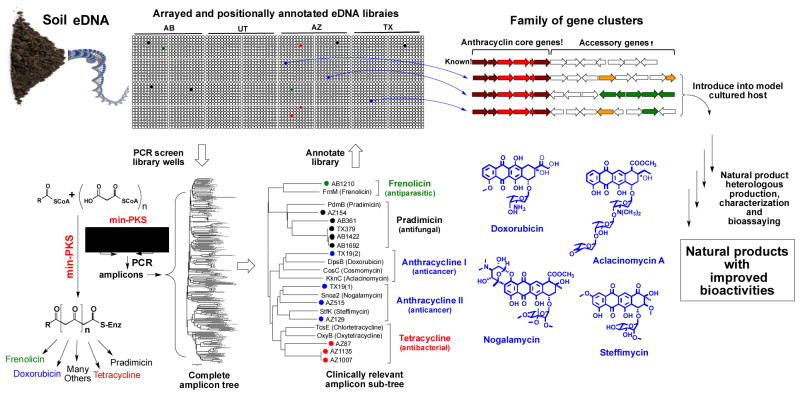Figure 1.
Sequence guided discovery of clinically relevant polyketides from arrayed soil metagenomic libraries. DNA extracted directly from soil is used to construct saturating cosmid mega-libraries (>10,000,000 clones), which are arrayed as pools of unique 5,000 membered sub-libraries. Aromatic polyketide min-PKS gene cassettes are amplified in PCR reactions with degenerate primers using DNA from each unique sub-library within the California (AB), Utah (UT), Arizona (AZ) and Texas (TX) mega-libraries as template. The phylogenetic grouping of eDNA sequences with KSβ sequences from gene clusters that encode clinically relevant natural products is used to guide the recovery of clones containing gene clusters of interest from specific sub-libraries. Heterologous expression of bioinformatically unique eDNA-derived gene clusters can be used to expand the structural diversity seen within known families of natural products and to potentially identify metabolites with improved activities.

